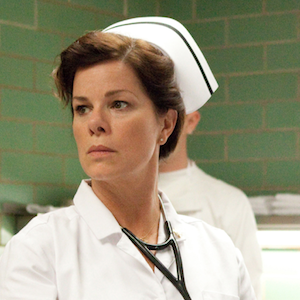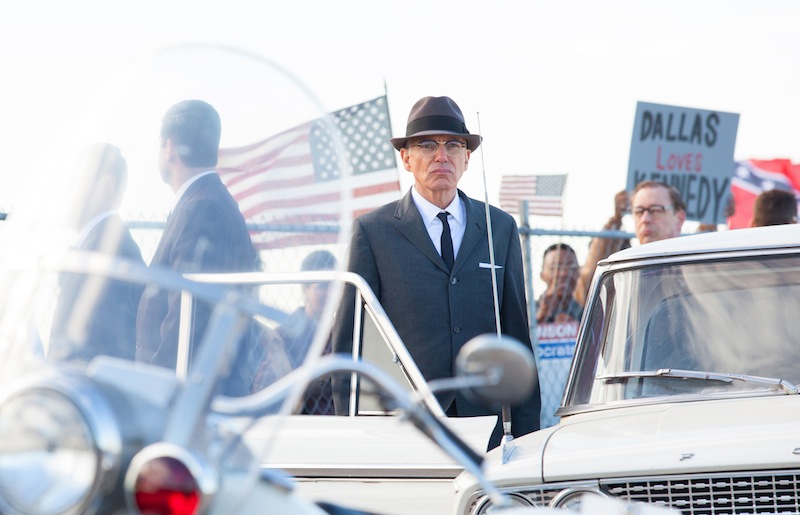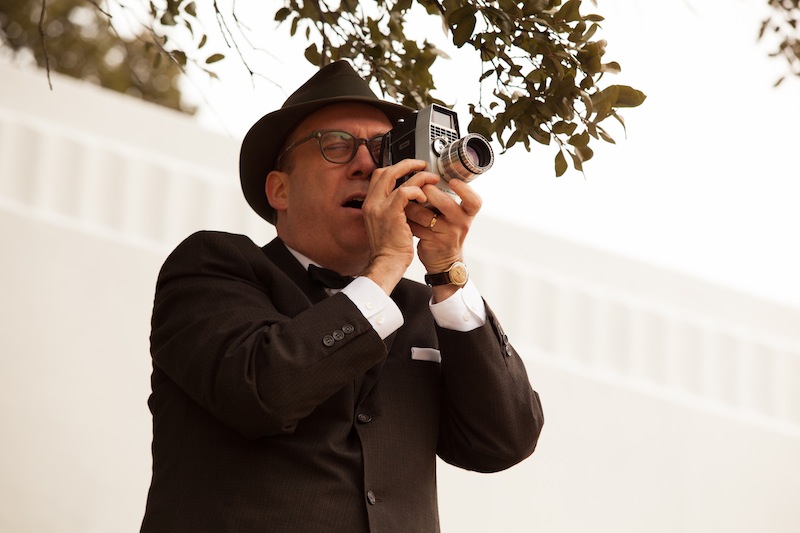Parkland Review – 50th Anniversary of JFK Death
November 22nd 2013 marks the 50th anniversary of JFK’s assassination and ‘Parkland’, Peter Landesman’s film, is a timely meditation on the more intimate impact of this event on those closest to it during those four days in November, 1963. In ‘Parkland’ writer/director Landesman opts to forego any further rumination about those responsible for the assassination of JFK and instead turns his lens to the so called ‘folk’ that suddenly found themselves in the midst of this unimaginable event that would change the course of history: Abraham Zapruder (Paul Giammati) who happened to capture the exact instance of the fatal shots with his 8mm Kodak; JFK bodyguard Roy Kellerman (Tom Welling); attending nurse at Parkland Hospital, Doris Nelson (Marcia Gay Harden); attending Doctor Jim Carrico (Zac Efron); Dallas District Secret Service Director Forrest Sorrels (Billy Bob Thornton); Robert Edward Oswald (James Badge Dale),and Marguerite Oswald, Lee’s brother and mother.
It would appear the over-arching theme and purpose of the film is to show us how these regular Americans responded to a ‘fallen hero” and how unprepared a nation, an acknowledged super-power, actually was. We see the futile attempt by the Parkland hospital staff to revive the fatally wounded President. Landesman spares no detail in the careful recreation to give us the grisly details in the OR.. At one point a stunned Mrs. Kennedy, her pink suit splattered with JFK’s blood, hands over a clutch of her husband’s brain matter to Nurse Nelson. We witness an amateurish and awkward shouting and shoving match between JFK’s Secret Service detail and the local Dallas Police that is sparked by the Local Coroner demanding JFK’s body remain in Dallas under his jurisdiction. Just as revealing and symbolic of the nation’s shock and ill preparedness is the detailed and sweaty effort to lift Kennedy’s casket into the President’s plane — seats had to be removed on a moments notice, a dividing wall hacked down to make room. Landesman gives us every fractional moment as Kennedy’s staff, in disbelief or in denial of the event, continue to protect the President, closing ranks around the body as would loyal Knights to their King. It is in these episodic vignettes that Landesman captures us but then lets us go as he shifts the narrative focus to Zapruder or Oswald’s brother and mother.
Of particular interest is the sympathetic treatment given to Oswald’s family by the filmmaker. We see the vitriolic disdain of the Dallas police toward Robert Oswald but we also see moments of heart felt sympathy for the Oswald kin who must bear the tragic consequences and scorn of a nation. Landesman uses several camera cuts back and forth between events to juxtapose the funerals of JFK and his presumed killer. Marguerite Oswald blurts out that her son worked for the government, served his country, and should be buried alongside JFK at Arlington Cemetery. This is as close as Landesman gets to a suggestion that Oswald may have been part of or a patsy in a much larger conspiracy. But Oswald’s mother is painted clearly as a provocateur, and perhaps a bit looney. The film is mostly mute about the bigger questions.
So why make the film at all? Landesman’s effort follows a canon of thousands of articles and books on JFK and the JFK assassination, dozens of film documentaries and several major motion pictures. This should give us a clue as to why. Its not unusual to ‘fill in the details’, tell other related stories to the main event, particularly if the main event has attained mythological status, a sort of JFK ‘apocrypha’, to give meaning to it. In this case, to try and explain how real people responded to the events, ‘lest we forget’. If Landesman and well heeled Hollywood actor-producer Tom Hanks set out to remind us how real and grisly the JFK assassination was 50 years on (they certainly had this threshold date in mind), or to bring the next generation ‘up to speed’ on one of the most epochal moments of the 20th century, they succeed, its just not a great film.
There is something lacking in Landesman’s narrative despite several vivid and riveting scenes that re-awaken us to selected facts about the totally unexpected and shocking murder of the most powerful man in the western world. An effort to give us the response to the events by real people is stymied by characters who remain secondary historical players in a much wider drama – we never really get to know any of them.
JFK’s assassination, amongst other things, marked for Americans the end of a domestic innocence about its leadership, that the man elected to the White House was in control of its destiny and untouchable, safe from rogue elements within its borders (if you believe the conspiracy theorists), a vendetta carried out by organized crime, a coup d’etat or, in the generally accepted mythology, the act of a lone madman like Lee Harvey Oswald.
For our generation we can still ask “where were you when JFK was shot?” but for the majority of the current movie going public, they weren’t even born yet. For them, this could serve as a timely reminder on its 50th anniversary of how a nation can be shaken to its emotional core by the murder of a beloved leader.
Alfredo Romano
Shown at this year’s TIFF13 : Toronto International Film Festival.





